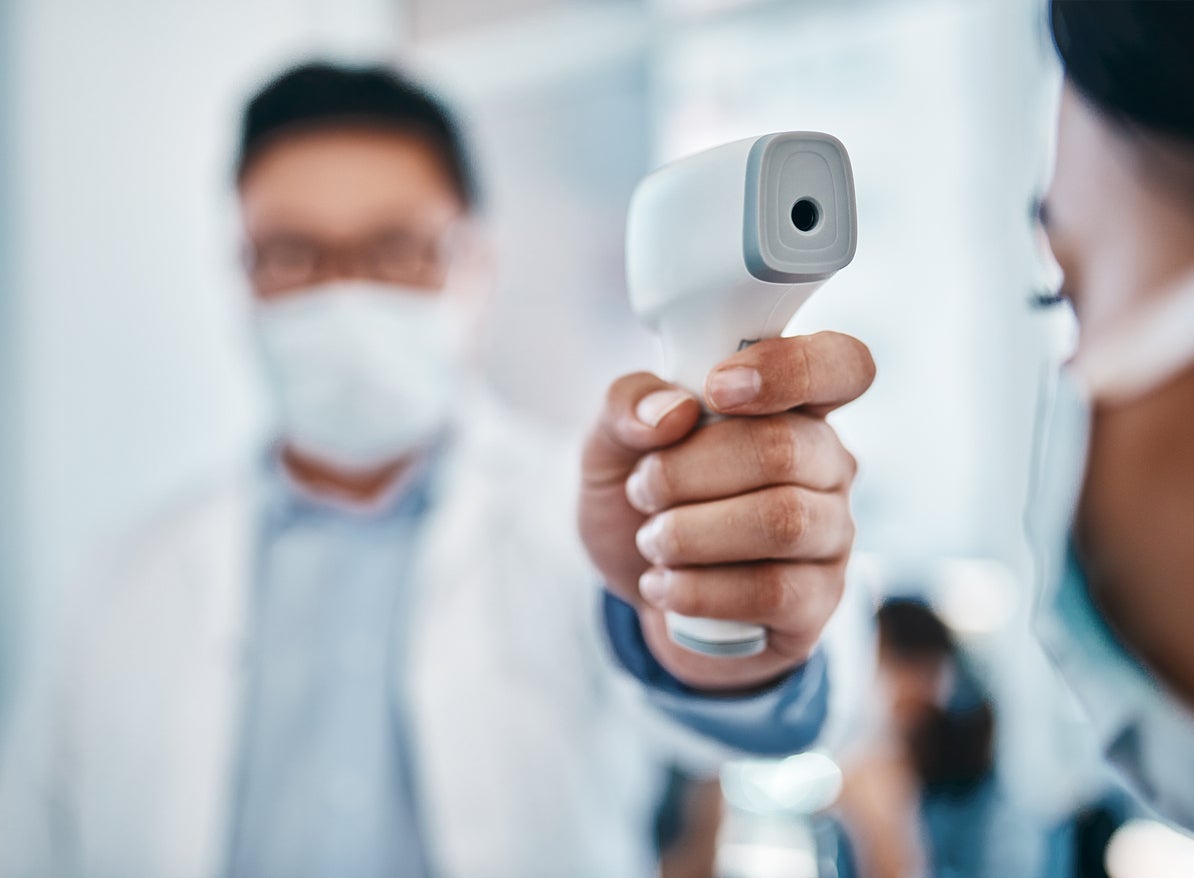Symptom-based screening for Covid at airports is ‘ineffective’, says CDC report
CDC suggested pre-departure testing could help reduce coronavirus transmission during travel

Your support helps us to tell the story
From reproductive rights to climate change to Big Tech, The Independent is on the ground when the story is developing. Whether it's investigating the financials of Elon Musk's pro-Trump PAC or producing our latest documentary, 'The A Word', which shines a light on the American women fighting for reproductive rights, we know how important it is to parse out the facts from the messaging.
At such a critical moment in US history, we need reporters on the ground. Your donation allows us to keep sending journalists to speak to both sides of the story.
The Independent is trusted by Americans across the entire political spectrum. And unlike many other quality news outlets, we choose not to lock Americans out of our reporting and analysis with paywalls. We believe quality journalism should be available to everyone, paid for by those who can afford it.
Your support makes all the difference.Screening air passengers for symptoms associated with coronavirus is “resource-intensive” and “ineffective” according to a new report from the US Centers for Disease Control and Prevention (CDC).
Instead, testing, done within 72 hours of departure, could help reduce transmissions of Covid-19 during travel.
The findings were published in the CDC’s Morbidity and Mortality Weekly Report (MMWR), as a part of a study looking at the enhanced screening that took place at designated US airports between 17 January and 13 September, when the programme ended.
Several US airports, including Los Angeles Airport and New York JFK, became dedicated entry points for passengers who had recently travelled to or transited through China during this period. The screening was later expanded to include other destinations that had “widespread, sustained transmission” of Covid-19.
At these airports, incoming passengers were screened according to known coronavirus symptoms, including temperature checks, and had to fill in a health questionnaire.
The aim was to control the spread of coronavirus in the US and reduce the number of cases being brought into the country by separating those who may have had the illness, educating passengers about the virus and to collect their contact details..
According to the report, between 17 January and 13 September, a total of 766,044 travelers were screened. Of these, just 298 (0.04 per cent) met the criteria for public health assessment, 35 (0.005 per cent) were tested for Covid-19, and nine (0.001 per cent) had a positive test result.
Despite requiring “considerable resources”, the screening programme identified just one positive coronavirus case per 85,000 passengers according to the report. It led the report’s authors to conclude that “symptom-based screening programmes are ineffective because of the nonspecific clinical presentation of Covid-19 and asymptomatic cases.”
Several reasons were cited for the low detection rate, including “an overall low Covid-19 prevalence in travellers; the relatively long incubation period; an illness presentation with a wide range of severity, afebrile cases, and nonspecific symptoms common to other infections; asymptomatic infections; and travellers who might deny symptoms or take steps to avoid detection of illness (eg through use of antipyretic or cough suppressant medications).”
Despite this, the screenings may have “lessened the incidence of Covid-19 in the United States early in the pandemic by discouraging symptomatic persons from travelling, limiting entry of potentially infected travellers, and promoting actions to prevent transmission from infected travellers, including a recommendation to stay home for 14 days after arrival,” the reports said.
The CDC has since modified its approach to reducing coronavirus in the US by increasing education and awareness, including advising the use of masks on board flights.
The report added: “Predeparture testing of travellers, ideally with specimen collection within 72 hours before departure, might reduce the risk for SARS-CoV-2 transmission during travel. Postarrival testing could allow for shortening of posttravel self-quarantine periods that protect against travel-associated imported (translocated) infections.”



Join our commenting forum
Join thought-provoking conversations, follow other Independent readers and see their replies
Comments